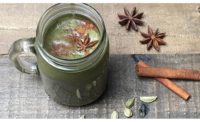Foods and food ingredients can affect our moods in myriad ways, both in the short-term soon after consumption and in the long term as part of our overall holistic physiology. What we ingest can have a positive impact on certain conditions, such as depression or anxiety, or, when simply quite pleasurable – think: chocolate or ice cream – give a quick burst of dopamine.
A scientific review of foods with purported antidepressant nutrients published in The World Journal of Psychiatry, scored those with the highest determined values for treating depression. A comprehensive range of foods were examined for 12 known nutrients already well-accepted as able to relate to the prevention and treatment of depressive disorders. The nutrients were: folate, iron, long-chain omega-3 fatty acids (EPA and DHA), magnesium, potassium, selenium, thiamine, vitamin A, vitamin B6, vitamin B12, vitamin C, and zinc.
The foods that scored the highest for some or all of these ingredients were: bivalves, such as oysters and mussels; seafoods; and organ meats. Among plant-based sources, leafy greens, lettuce, peppers, and cruciferous vegetables scored highest.
Yet there are a number of whole foods known to help anxiety. These foods include raw cacao (high in magnesium), turmeric, ashwagandha (powdered into a night-time beverage), reishi mushroom (the most calming of the adaptogenic mushrooms), and omega-3 fatty acids. For the latter, it is well-established that omega-3 fatty acids and other lipid-based ingredients are vital for brain function and cognition and thus to maintain a good mood.
YES, CHOCOLATE
Upon further examination of chocolate — the most craved food — it is easy to wonder whether it is a food or a drug. This is because chocolate is a trove of mood-affecting chemicals, including multiple flavonoids, such as catechins and anthocyanidins; cannabinoid-like compounds; alkaloids, such as theobromine, xanthine, theophylline, and caffeine; bioactive amines, such as phenylethylamine (PEA), polyphenols, and mood-boosting essential oils. Chocolate also is a source of beneficial minerals such as magnesium and is the number one dietary source in the US for copper.
CITRUS AND SPICE
Citrus fruits have long been associated with a boost in mood, more so than any other fruits. They are high in vitamin C, a deficiency of which is associated with irritability, depressive moods, and low energy. They also are quick sources of natural sugars, and grapefruits contain natural glucose stabilizers. The essential oils in citrus fruit have also been shown to elevate mood — sort of the original aromatherapy.
In fact, psychological studies have indicated that the smell of oranges is especially calming. Research conducted in Brazil in 2013 revealed that people who breathed in the scent of sweet orange essential oil prior to taking a stressful exam reported lower anxiety levels than control subjects. And at Northumbria University, UK, researchers found that the smell of lemon and other citrus helped improve cognitive performance while elevating mood.
Bergamot, lemons, lime, neroli, orange, or grapefruits all have volatile oils that have been found to invigorate the senses and provide a boost in mood. In another citrus and mood study, citrus scent was able to allow for a reduction in the amount of antidepressant medication necessary in depressed patients.
Spices, too, add aromatherapy qualities to foods and beverages. Cinnamon, vanilla, and mint all have studies backing a capacity to calm feelings of stress and anxiety. Jasmine and lavender, too, have calming effects and even have been shown to help sleep.
Although the excitement about curcumin on the market has seemed to settle down, the scientific proof that it is a multitarget ingredient in our health continues to build. A new study shows that curcumin administered alone (500 mg of a specific curcumin extract) was associated with an overall improvement in the Gastrointestinal Symptom Rating Scale, as well as an improvement in mood.
The authors were not sure whether the results of the study were due to the action of stabilizing the mood which then caused the enteric gut nervous system to also calm down, or whether the curcumin extract settled the GI tract locally and that was accompanied by some overall systemic improvement. Remarkably, there were no changes in gut microbiome noted in this study, perhaps because the participants were already healthy.
Still, this study sets the stage for curcumin to be used in mood enhancement, as those subjects that took the curcumin extract had a 52% reduction in anxiety levels vs. a 16% reduction in the placebo group.
In the past year, one of the most vulnerable populations affected by stress is that of adolescents. Multiple surveys demonstrate that young people have been reporting high levels of stress and anxiety. Meanwhile, a study by UNICEF, Australia, revealed that less than half of young people report they are “coping well.”
Although most mood-boosting supplements are geared towards adults, an extract of Saffron has been shown to safely improve anxiety and depression symptoms in a randomized, placebo-controlled clinical study involving adolescents aged 12-16 years old with mild to moderate symptoms. Saffron extract is thought to balance key neurotransmitter levels, such as serotonin and dopamine, while also moderating oxidative stress that is produced by anxiety and stress in the brain.
DAIRY
Consumption of probiotic-rich dairy has been shown in clinical studies to help relieve anxiety and stress by reducing the activity in the emotional region of the brain. Recently, more dairy-based ingredients have been emerging with mood-boosting benefits. Milk phospholipids are poised for use in stress-relieving snacks.
The dairy-derived prebiotics galacto-oligosaccharides have been purported to help calm stress and anxiety. And supporting the tradition of having a glass of warm milk before bed, studies have indicated that bioactive dairy protein can help improve sleep.
Milk is one of the main dietary sources of the amino acid tryptophan, a precursor for both serotonin and melatonin. Serotonin is the body’s primary hormone for regulating mood, inspiring feelings of happiness, and stabilizing a sense of well-being. Melatonin helps regulate sleep cycle and aids in inducing sleepiness.
MIND YOUR Ps & Qs
Two particular phospholipids, phosphatidyl serine (PS) and phosphatydic acid (PA) are vital components of cell membranes. They not only help keep the membranes flexible, PS has been shown to help increase glucose metabolism and reduce oxidative stress in the brain. In precise combination, the two have demonstrated in multiple clinical studies a significant ability to help subjects relax under pressure and lower their stress while reducing the physical signs of stress. Other studies have demonstrated that PS/PA
can assist in overall performance during stressful events.
An all-natural form of pyrroloquinoline quinone (PQQ), has been shown to stimulate mitochondrial biogenesis and help with producing energy for the body, as well as promoting heart and brain health. It also was found in one clinical study to have positive effects on stress and fatigue and aid in improving sleep.
In one study, people took 20 mg of PQQ daily for eight weeks and saw significant improvements in vigor, fatigue, tension-anxiety, depression, anger-hostility, and confusion. Additional improvements reported were for quality of life, sleep, obsession and pain. As PQQ is also available as a GRAS ingredient, expect to see its addition into more functional foods with various energy and mood applications.
With the new tools and ingredients available to developers, there is no reason that eating healthy foods should be a let-down. If flavors and food fragrances have been used to increase the attraction of the mass market to unhealthy foods in the past—think fast food chains—perhaps these same tools can be used to make us crave healthy, good-for-you and feel-good foods.
Kerry Hughes, MS, principal for EthnoPharm, is an ethnobotanist, herbalist, and author with a 20-year record of success in natural product development. EthnoPharm specializes in innovative product formulation, education, and nexus-of-market opportunity identification. A regular contributor, a number of her articles on botanicals and other topics are available on www.preparedfoods.com. She can be reached at kerry@ethnopharm.com.



























